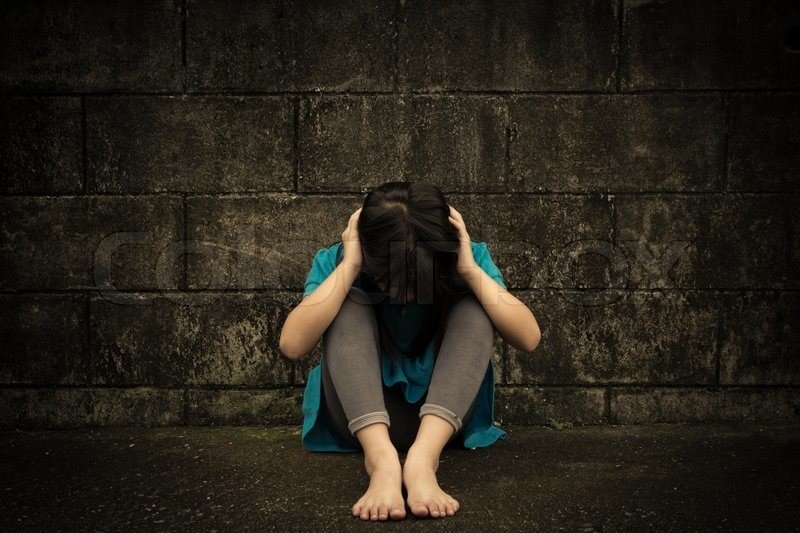As the COVID-19 pandemic took its toll on millions of jobs in Thailand last year, Unyakarn Booprasert found herself penniless and with no friends or relatives who could help.
The 59-year-old was splitting one packet of instant noodles between three meals. She was desperate for the 15,000 baht (S$655) promised by the government, to be paid over three months, under its No One Left Behind cash relief scheme.
When she learnt she was among the 15 million applicants who did not qualify for aid, Unyakarn decided to plead her case to Thailand’s authorities last April.
“When I got to the Ministry of Finance, sure enough, they didn’t listen,” said the cleaner. “From their actions, a poor person was similar to a pig or a dog, an animal with scabies.”
Unyakarn tried to kill herself with rat poison in front of the ministry’s building. “I wanted to protest. It didn’t happen only to me. It happened to many people,” she told the programme Undercover Asia.
After her suicide attempt, the authorities looked into her case again and decided she qualified for the relief.
Suicides in Thailand have gone up amid the COVID-19 pandemic. A total of 2,551 people killed themselves in the first half of last year, up 22 per cent from the same period in 2019. Health officials attributed the increase to pandemic-related stress.
Groups particularly impacted by the pandemic’s fallout include tourism employees, sex workers and migrants. Foreign tourism, which makes up 12 per cent of Thailand’s gross domestic product, has collapsed as nations curb international travel to fight the spread of COVID-19.
Sex workers, meanwhile, may not be registered in the social security system and have limited access to government support, said economist Thanaporn Sriyakul.
Rural-to-urban migrants have also faced difficulty getting aid under the No One Left Behind scheme, as they may be classified in government records as farmers, who come under a different financial scheme.
A PROBLEM EVEN BEFORE COVID-19
A similar spike in suicides occurred during the 1997 Asian financial crisis, when the numbers increased by about 20 to 25 per cent, said Varoth Chotpitayasunondh, spokesperson for the Ministry of Public Health’s Department of Mental Health.
But even before the coronavirus created economic hardship, Thailand had the highest suicide rate in Southeast Asia — which has seen mental health experts and advocates pushing for more resources to tackle the problem.
According to the World Health Organisation (WHO) in 2019, Thailand’s annual suicide rate was 14.4 per 100,000 of the population, while the global age-standardised average is 10.5 per 100,000. Age-standardised means variations arising from countries’ different age structures have been removed.
By comparison, the suicide rates in the other Association of Southeast Asian Nations member states on the WHO list varied from 3.2 (the Philippines) to 11.2 (Singapore) per 100,000 population.
There is a suicide attempt every 10 minutes in Thailand.
Deep-seated cultural and economic reasons contribute to Thailand’s relatively high suicide rate, according to the Singapore University of Social Sciences’ associate professor Antonio L Rappa, who has studied Thai culture, history and politics for over 20 years.
Apart from economic factors, he said the Thai people’s “long history of being warriors” has imbued their psyche with the “idea of death”.
The country’s protest culture means people may be willing to die “as a means to mark their cause”, while Theravada Buddhism, which is widely practised, teaches acceptance, he added.
During the pandemic, suicide helplines such as the one operated by the Samaritans of Thailand were swamped. Stories surfaced on social media of hotline calls going unanswered.
Varoth acknowledged that even after doubling the number of lines to 20 for the Department of Mental Health, it takes 10 to 12 minutes before someone can answer a call.
“Some people don’t want to wait until that time. They want it to be within five minutes, and it’s still very difficult,” he said. “The drop rate of the hotline now is still around 40 to 45 per cent.”
But he added that the government offers “very good” support for people with mental health issues — such as through universal health coverage that provides mental health treatment in public hospitals for around 30 baht.
Suicide survivor and mental health advocate Amornthep “Sanju” Sachamuneewongse, however, flagged gaps such as a shortage of mental health workers, the long wait at government hospitals and the much higher cost of treatment in private hospitals.
The 30-year-old developed hallucinations and other symptoms of depression and schizophrenia five years ago, and needed almost a year to be properly diagnosed.
He initially underwent a magnetic resonance imaging scan, which came out clear, and was taken by his parents to a spiritual doctor before he finally saw a psychiatrist.
He had harboured suicidal thoughts, but multiple calls to suicide hotlines went unanswered. “If my call was unanswered, how many other calls were unanswered as well?” he wondered
HIP-HOP AND ONLINE CHATS
Varoth acknowledged the need to increase mental health awareness and resources. In a bid to do so, Thai authorities are partnering non-profit groups, technology firms and even the entertainment industry.
Amid movement curbs when COVID-19 first began spreading, officials initially planned to round up homeless people — a group that has a higher prevalence of psychiatric disorders and suicide risk — and house them in shelters.
But social worker Adchara Saravari of the Issarachon Foundation, which helps the homeless in Bangkok, said: “We told them, ‘Let the homeless stay put. Don’t enforce the curfew on them. Let them sleep where they are. It’d be enough to reduce the spread.
This resulted in a collaboration between the people sector and the government to oversee homeless people within an area, she said.
But barriers remain. The homeless may not carry identity cards, making it difficult to verify information and for them to qualify for treatment, noted Adchara. They should not be blamed, she added, and the government should “take charge” and “support them”.
To reach out to members of the public, the Thai government has set up a special operations team called the Hope Task Force, which uses social media platforms such as Facebook, TikTok and the Line app to communicate with sufferers.
These platforms provide more channels of help and allow volunteers and mental health specialists to allocate resources more efficiently. For instance, they may chat with more than one person at a time online.
The Department of Mental Health also developed the app, Mental Health Check Up. Users may answer a series of questions on their chosen topics, which include burnout, stress levels and depression.
Sanju, too, created a mobile app after his experience with the manpower crunch in mental health care: Sati is a digital hotline for users with mental health issues to chat with people who have been trained to listen.
To reach out to youths in particular, the authorities collaborated with Unicef and music platform Joox Thailand last year on a campaign called The Sound of Happiness, which featured podcasts, songs and celebrities talking about mental health.
One of the songs, Nai Lao (Let’s Talk) by record label YUPP!’s hip-hop artists Autta, Blacksheep and Milli, became a favourite among young listeners.
“When we were discussing (the track), we thought of the line, ‘Some people choose ‘lao’ (to drink) over ‘lao’ (to tell),” said music producer and YUPP! founder Sakkapit Makun, explaining the pun in the title.
“The words have the same pronunciation but different meanings. It sounds simple. The lyrics are casual so that we can use it among friends. So it became the song Nai Lao.”
Suicide and mental health should be “the problem of everyone”, said Varoth.
“Right now, yes, we lack the resources to help with the mental health issue in Thailand because of COVID-19,” he noted.
“But we can solve this problem by inviting many parties, talking to many people, doing collaborations between organisations who are interested in mental health and letting Thai people decide to come together, help each other.”
If you need help, call the Thai Department of Mental Health hotline at 1323, or the Samaritans of Thailand at 02-713-6793
channelnewsasia




